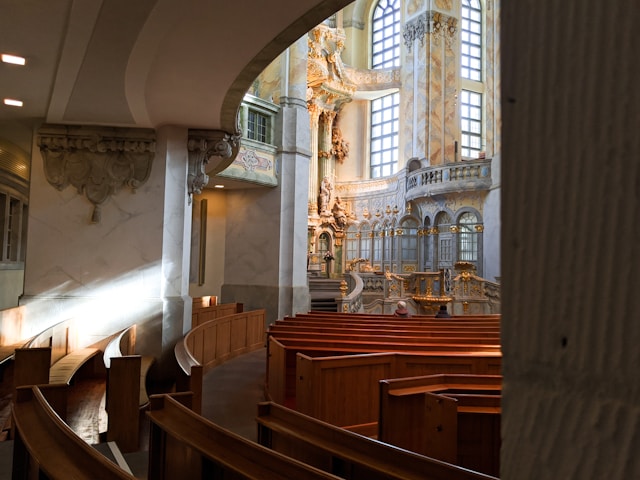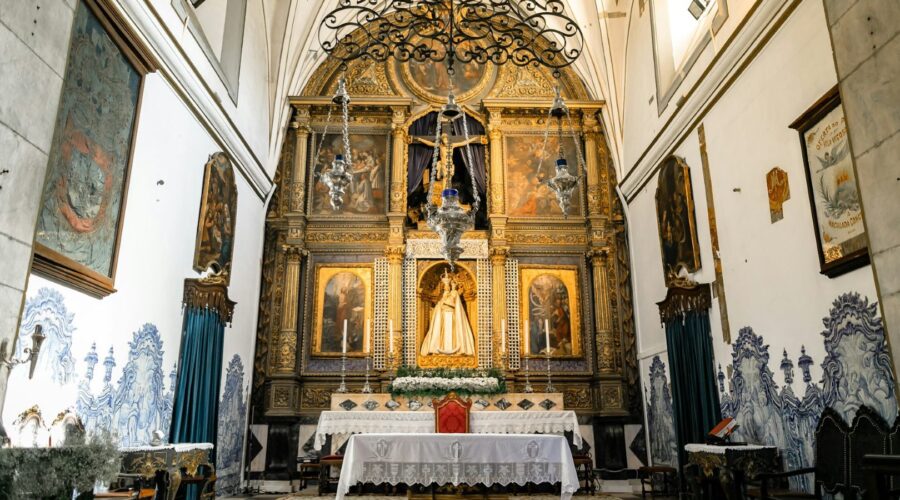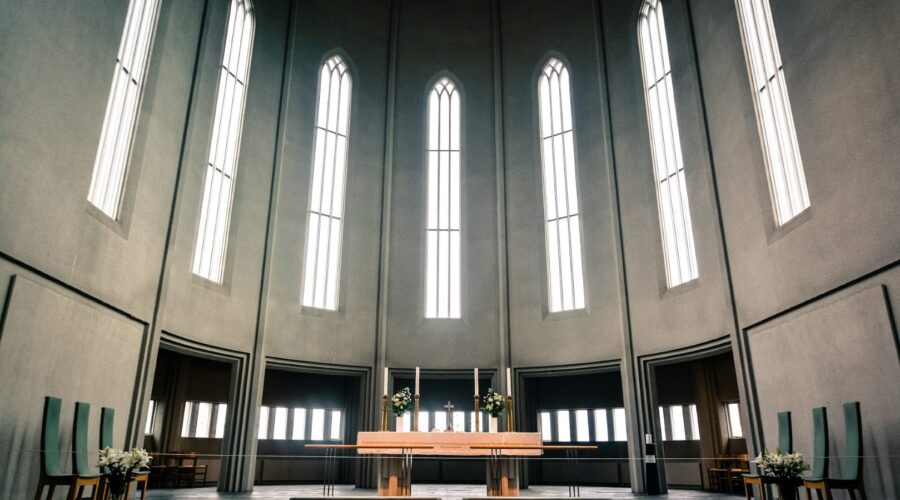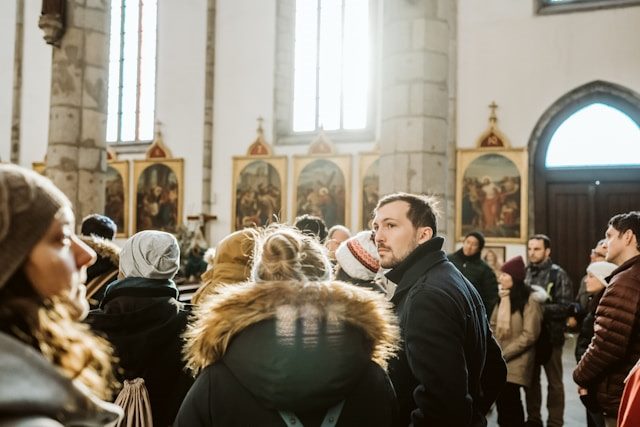Your cart is currently empty!
Blog

Discover Christian Churches Near You: A Comprehensive Guide to Find Your Spiritual Home
Introduction
Finding a Christian church that aligns with your spiritual beliefs and community needs is a crucial step in your faith journey. Whether you are new to Christianity or seeking a new church home, this guide will provide you with the necessary information and resources to locate Christian churches in your vicinity.
Online Directories and Search Engines
Google My Business
Google My Business is a free service that allows businesses, including churches, to create and manage their online presence. Search for “Christian churches near me” on Google, and you will be presented with a list of churches in your area, complete with contact information, addresses, and reviews.
ChurchFinder.com
ChurchFinder.com is a dedicated online directory specifically for churches. It provides a comprehensive database of churches across the United States, allowing you to search by location, denomination, and other criteria.
ChristianConnect.com
ChristianConnect.com is another online platform that connects Christians with churches in their area. It offers a variety of features, including a church directory, member profiles, and a discussion forum.
Local Resources
Local Chamber of Commerce
The local chamber of commerce can provide you with information about local businesses, including churches. Visit their website or contact their office to inquire about Christian churches in your area.
Public Libraries
Public libraries often have a section dedicated to religious materials, including church directories. Visit your local library to browse their collection or ask a librarian for assistance.
Community Centers
Community centers may host religious services or have information about local churches. Contact your local community center to inquire about any Christian churches that meet on their premises.
Denominational Websites
If you have a specific denominational preference, such as Baptist, Methodist, or Catholic, you can visit the official website of your denomination. Most denominations maintain a directory of churches in their affiliated regions, which can be searched by location.
Tips for Choosing a Church
- Visit multiple churches: Don’t settle for the first church you come across. Take the time to visit different churches in your area to get a feel for their worship services, sermons, and overall atmosphere.
- Consider your beliefs: Make sure the church you choose aligns with your core Christian beliefs and values. Research the church’s doctrine, mission statement, and biblical interpretation to determine if it is a good fit for you.
- Connect with the community: A church is more than just a building; it is a community of believers. Look for churches that offer opportunities for fellowship, Bible study, and service to others.
- Consider your needs: Determine what you are looking for in a church. Do you want a large congregation with a variety of programs or a smaller, more intimate setting? Do you have specific preferences for music, worship style, or children’s ministry?
- Pray about it: Ultimately, finding the right church for you is a spiritual decision. Pray for guidance and discernment as you search.
Conclusion
Finding a Christian church near you can be a rewarding experience that strengthens your faith and connects you with a community of believers. By utilizing online directories, local resources, and denominational websites, you can locate churches in your area that meet your spiritual and community needs. Remember to visit multiple churches, consider your beliefs, connect with the community, and pray for guidance as you make your decision.

Find Tranquility and Community at a Catholic Church Near You
Finding a Catholic Church
Embarking on the search for a Catholic church near you can be a fulfilling experience, connecting you with a community of faith and spiritual guidance. Here are some helpful steps to assist you in your journey:
Online Directories:
Local Search:
- Use search engines like Google or Bing with keywords such as “Catholic church near me.”
- Check local phone directories or business listings.
Word-of-Mouth:
- Inquire with friends, family members, or neighbors who may attend a Catholic church.
Choosing a Catholic Church
Once you have identified several potential churches, consider the following factors when making your decision:
Location and Accessibility:
- Choose a church that is conveniently located and easy to access for both regular attendance and special events.
Mass Schedule:
- Review the church’s Mass schedule to ensure it aligns with your availability and preferences.
Parish Community:
- Visit the church on different days and times to observe the parish community and its atmosphere.
- Attend social events or parish activities to connect with members.
Spiritual Guidance:
- Consider the reputation and experience of the priests or other clergy.
- Seek feedback from parishioners about their spiritual guidance and support.
Benefits of Attending a Catholic Church
Becoming an active member of a Catholic church offers numerous spiritual and personal benefits:
Sacraments and Rituals:
- Receive the sacraments of Baptism, Eucharist, Confirmation, Reconciliation, Anointing of the Sick, and Matrimony.
- Participate in liturgical rituals, including Mass, Adoration, and Novenas.
Community and Fellowship:
- Connect with a supportive and welcoming community of faith.
- Join parish activities, groups, and ministries.
Spiritual Growth and Formation:
- Attend workshops, retreats, and Bible studies to deepen your understanding of the faith.
- Receive guidance and support from priests and other members of the parish.
Service and Outreach:
- Participate in charitable works and outreach programs to make a positive impact on the community.
- Serve in various ministries, such as altar serving, hospitality, or teaching.
Additional Tips for Finding a Catholic Church
Consider the following suggestions to enhance your search:
- Explore different Catholic churches in your area to find the best fit for you.
- Attend Mass on a weekday or weekend to experience the worship and community dynamics.
- Don’t hesitate to ask questions and request information from the parish office or clergy.
- Trust your instincts and choose a church where you feel spiritually connected and supported.
Conclusion
Finding a Catholic church near you is a journey that can lead to spiritual fulfillment and a sense of belonging. By following the steps outlined above and considering the factors discussed, you can identify a parish that aligns with your needs and aspirations. Embrace the opportunity to connect with a community of faith and embark on a transformative spiritual adventure.

Unveiling the Splendor of St. Peter’s Basilica: A Comprehensive Guide
Standing tall as a beacon of faith and architectural marvel, St. Peter’s Basilica in Vatican City is the very heart of the Catholic Church. Its towering presence and exquisite beauty have captivated pilgrims and art enthusiasts for centuries. In this comprehensive guide, we delve into the captivating history, stunning architecture, and captivating interiors of this iconic basilica.
Historical Journey
The basilica’s origins can be traced back to the 4th century, when Emperor Constantine the Great ordered the construction of a basilica over the tomb of St. Peter, the first pope. The original basilica stood for over a millennium before falling into disrepair. In the 16th century, Pope Julius II embarked on an ambitious project to replace the dilapidated structure, resulting in the construction of the current basilica.
Papal Architects
- Donato Bramante: Conceptualized the original design with a Greek cross plan.
- Michelangelo: Redesigned the basilica, giving it its signature centralized plan and iconic dome.
- Bernini: Contributed the majestic colonnade and elaborate interior decorations.
Architectural Masterpiece
St. Peter’s Basilica boasts an awe-inspiring architectural design that fuses elements of Renaissance, Baroque, and Classical styles.
Exterior
- Façade: A grand entrance designed by Carlo Maderno, featuring statues of Christ, the apostles, and 140 saints.
- Colonnade: Bernini’s masterpiece, comprising four rows of Doric columns that frame the Piazza San Pietro.
- Dome: Michelangelo’s architectural triumph, the largest dome in the world, crowned by a lantern and topped with a cross.
Interior
- Nave: A vast central aisle adorned with massive columns and frescoes.
- Transepts: The arms of the cross, featuring Michelangelo’s “Pietà” and Bernini’s “Ecstasy of Saint Teresa” sculpture.
- Sanctuary: The holiest part of the basilica, where the papal altar and the tomb of St. Peter are located.
Captivating Interiors
Beyond its stunning exterior, St. Peter’s Basilica is home to an astounding collection of art and religious artifacts.
Mosaics
The basilica is renowned for its magnificent mosaics, crafted by master artists over centuries.
Examples:
- “Navicella”: Giotto’s depiction of the miraculous catch of fish.
- “Triumph of St. Peter”: Pietro da Cortona’s ceiling fresco in the nave.
- “Gloria di San Pietro”: Bernini’s mosaic depicting the glory of St. Peter.
Sculptures
The basilica is adorned with exquisite sculptures by renowned artists, including Michelangelo and Bernini.
Examples:
- “Pietà”: Michelangelo’s masterpiece, a marble sculpture of the Virgin Mary holding the dead Christ.
- “Ecstasy of Saint Teresa”: Bernini’s dramatic marble sculpture depicting the saint’s mystical experience.
- “Moses”: Michelangelo’s muscular statue originally intended for the tomb of Pope Julius II.
Tombs
The basilica houses the tombs of numerous popes and saints.
Notable Tombs:
- Pope John Paul II: A simple tomb in the Vatican Grottoes.
- Pope John XXIII: A marble tomb in the basilica’s nave.
- St. Peter: The tomb of the first pope, located beneath the papal altar.
Visiting St. Peter’s Basilica
Planning a visit to St. Peter’s Basilica is a must for travelers seeking cultural immersion and spiritual enrichment.
Tips for Visiting:
- Book in Advance: Consider pre-booking skip-the-line tickets or guided tours for a hassle-free experience.
- Dress Code: Respectful attire is required, covering shoulders and knees.
- Photography: Flash photography is not permitted, but non-flash photography is generally allowed.
- Time Allowance: Allocate ample time for your visit, as there is much to explore.
- Audio Guides: Enhance your experience by renting an audio guide.
Conclusion
St. Peter’s Basilica stands as a testament to human ingenuity, creativity, and spiritual significance. Its towering presence, exquisite architecture, and captivating interiors have ensured its place as one of the most iconic and awe-inspiring buildings in the world. Whether you are a pilgrim seeking spiritual fulfillment or an art enthusiast marveling at its beauty, a visit to St. Peter’s Basilica will undoubtedly leave a lasting impression.

Christian Marriage Counseling: A Guide to Restoring and Strengthening Your Relationship
Introduction
Marriage is a sacred union ordained by God, but even the strongest marriages can face challenges. Christian marriage counseling is a valuable resource for couples who are struggling with issues that threaten the health and stability of their relationship. This specialized type of counseling is rooted in Biblical principles and offers guidance and support to help couples navigate marital difficulties and restore their bond.
Christian marriage counseling is not a quick fix but a journey of growth and healing. It involves addressing the underlying issues that are causing problems in the relationship and working together to develop healthy coping mechanisms and communication skills. If you and your spouse are struggling, Christian marriage counseling can provide the support and guidance you need to rebuild and strengthen your marriage.
Benefits of Christian Marriage Counseling
- Biblical Foundations: Christian marriage counseling is based on the teachings of the Bible, which provides a firm foundation for understanding marriage and relationships.
- God-Centered Approach: The counseling process acknowledges the role of God in marriage and seeks to bring couples closer to Him.
- Licensed and Trained Counselors: Christian marriage counselors are licensed professionals who have received specialized training in marriage counseling and Biblical principles.
- Confidential and Safe Space: Counseling sessions are held in a confidential and safe environment, allowing couples to discuss sensitive issues openly.
- Focus on Restoration: Christian marriage counseling aims to help couples restore their relationship and build a stronger bond.
Common Issues Addressed in Christian Marriage Counseling
Christian marriage counselors can help couples navigate a wide range of marital issues, including:
- Communication problems
- Financial stress
- Infidelity
- Parenting challenges
- Unresolved trauma
- Differing values and expectations
- Emotional distance
- Physical or emotional abuse
How Christian Marriage Counseling Works
Christian marriage counseling typically involves a series of weekly or bi-weekly sessions. The counselor will meet with both spouses individually and together to gain a comprehensive understanding of the challenges they are facing.
As the counseling progresses, the counselor will help couples:
- Identify the root causes of their problems
- Develop healthy communication patterns
- Learn conflict resolution skills
- Build emotional intimacy
- Foster forgiveness and reconciliation
- Apply Biblical principles to their relationship
Finding a Christian Marriage Counselor
Finding a qualified Christian marriage counselor is crucial. Here are some tips:
- Ask for recommendations from trusted friends, family members, or your pastor.
- Search online directories of Christian marriage counselors.
- Interview potential counselors to ensure they are a good fit for your needs.
- Consider their experience, training, and approach to counseling.
- Make sure they are licensed and accredited.
Cost of Christian Marriage Counseling
The cost of Christian marriage counseling varies depending on the counselor’s experience, location, and frequency of sessions.
Some insurance plans may cover the cost of marriage counseling. It is advisable to check with your insurance provider to determine your coverage.
When to Seek Christian Marriage Counseling
If you and your spouse are experiencing significant marital problems that you cannot resolve on your own, it is time to seek professional help.
Don’t hesitate to reach out for help if you are facing any of the following:
- Constant arguments and conflicts
- Lack of communication or emotional intimacy
- Infidelity or other trust issues
- Physical or emotional abuse
- Unresolved trauma or grief
- Considering separation or divorce
Conclusion
Christian marriage counseling can be a transformative experience for couples who are facing marital challenges. By seeking guidance from a qualified counselor, you and your spouse can gain the tools and support you need to restore your relationship, deepen your connection, and create a stronger bond that is rooted in Biblical principles.
Remember, marriage is a lifelong journey, and there will be times when you and your spouse face difficulties. However, with God’s grace and the support of a Christian marriage counselor, you can overcome these challenges and build a vibrant and fulfilling marriage that brings glory to Him.

The Enigmatic Lady of the Lake: Unveiling the Myths and Legends
Origins and Mythology
The Lady of the Lake, also known as Viviane or Nimue, is a captivating figure steeped in Celtic folklore and Arthurian legend. Her enigmatic origins and multifaceted nature have captivated generations of storytellers and enthusiasts alike.
Arthurian Romance
In the Arthurian tales, the Lady of the Lake plays a pivotal role as a protector and guide to the legendary King Arthur. According to the legend, Arthur receives the magical sword Excalibur from her, which becomes a symbol of his power and legitimacy.
Celtic Goddesses
Some scholars believe that the Lady of the Lake has roots in ancient Celtic goddesses, such as the water deity Coventina. These goddesses were associated with the healing properties of water and were often depicted in association with lakes and rivers.
Different Versions of the Legend
Over the centuries, various versions of the Lady of the Lake’s legend have emerged, reflecting the rich tapestry of Celtic and Arthurian lore.
Lady of the Fountain
In the early Welsh text “Mabinogion,” she appears as the Lady of the Fountain, a beautiful and alluring maiden who tests the worthiness of potential knights. Those who fail her trials are doomed to misfortune.
Nimue
In later medieval romances, the Lady of the Lake takes on the name Nimue. She becomes Arthur’s enchantress and lover, teaching him magical arts and eventually imprisoning the wizard Merlin.
Her Attributes and Powers
The Lady of the Lake possesses a range of attributes and powers that make her a formidable and enigmatic figure:
Healing and Nature Magic
She is renowned for her healing abilities and her command over nature. Her magic is connected to the element of water, and she can control bodies of water, summon storms, and use her healing touch to mend wounds.
Prophecy and Knowledge
The Lady of the Lake is also known for her foresight and knowledge of the future. She often appears to heroes and seekers, offering guidance and prophecy.
Beauty and Allure
Her physical beauty is described as captivating, with radiant skin, piercing eyes, and flowing hair. She uses her allure to enchant and sometimes manipulate those who cross her path.
Significance and Interpretations
The Lady of the Lake holds a significant position in Celtic and Arthurian literature, embodying themes of:
Nature and Femininity
She represents the primal power of nature, particularly the feminine aspect of water and the earth. Her connection to lakes and rivers symbolizes the life-giving and transformative qualities of water.
Sovereignty and Power
The Lady of the Lake’s control over Excalibur and her association with Arthur’s reign suggests her role as a symbol of sovereignty and authority. She represents the feminine power that supports and challenges male authority.
Mystery and Transformation
Her enigmatic nature and ability to appear and disappear at will embody the mystery and fluidity of the Celtic underworld. She is a liminal figure, existing between the worlds of mortals and immortals.
Table of Notable Appearances
| Work | Version | Description |
|—|—|—|
| Mabinogion | Lady of the Fountain | Tests knights at her magical fountain |
| Morte d’Arthur | Nimue | Enchants and imprisons Merlin |
| Idylls of the King | Vivian | Guides and supports Sir Lancelot |
| The Mists of Avalon | Viviane | A powerful priestess and guardian of the Arthurian legacy |Links to Other Resources
* [The Lady of the Lake in Arthurian Legend](https://www.britannica.com/topic/Lady-of-the-Lake)
* [The Celtic Goddess Coventina](https://www.sacredfeminineearth.com/coventina-roman-celtic-goddess-water-healing-springs/)
* [The Lady of the Lake in Popular Culture](https://www.theoi.com/Nymphe/NympheVivian.html)Conclusion
The Lady of the Lake, a figure woven into the fabric of Celtic and Arthurian mythology, continues to fascinate and inspire. Her enigmatic nature, her connection to nature, and her role as a protector and guide make her an enduring symbol of mystery, femininity, and the transformative power of the underworld. As scholars and storytellers continue to explore her legend, the Lady of the Lake remains an iconic figure, embodying the rich imagination and timeless themes that have captivated audiences for centuries.

Joel Osteen: A Comprehensive Guide to His Life, Ministry, and Beliefs
Who is Joel Osteen?
Joel Scott Osteen (born March 5, 1963) is an American pastor, televangelist, and author. He is the senior pastor of Lakewood Church in Houston, Texas, the largest megachurch in the United States. Osteen has authored several bestselling books, including “Your Best Life Now” and “I Declare.”
Early Life and Education
Osteen was born in Houston, Texas, to John Osteen, a Southern Baptist pastor, and Dolores (“Dodie”) Pilgrim. He attended Oral Roberts University in Tulsa, Oklahoma, for two years before transferring to the University of Houston, where he earned a degree in radio and television communications.
Ministry
Osteen began his ministry in 1992 at Lakewood Church, which was founded by his father in 1959. After his father’s death in 1999, Joel took over as senior pastor. Under his leadership, Lakewood Church has grown exponentially, becoming one of the most influential churches in the United States.
Preaching Style
Osteen’s preaching style is characterized by its positive, motivational, and often inspirational messages. He focuses on themes of hope, joy, and the power of faith. His sermons often include personal anecdotes and stories.
Televised Ministry
Osteen’s sermons are televised weekly on the SiriusXM satellite radio channel Joel Osteen Radio and on the Daystar Television Network. They are also available online and on the Lakewood Church app.
Controversies
Osteen has been the subject of some controversies, including:
* Wealth and Prosperity Gospel: Osteen has been criticized for his emphasis on wealth and prosperity, which some critics argue is not a central part of Christian teaching.
* Handling of Hurricane Harvey: In 2017, Osteen was criticized for not opening Lakewood Church as a shelter for Hurricane Harvey victims sooner.
* Lack of Accountability: Some critics have questioned the lack of accountability within Lakewood Church and Osteen’s own oversight.Beliefs
Osteen adheres to the basic tenets of evangelical Christianity, including:
* Belief in the Trinity (God the Father, God the Son, and God the Holy Spirit)
* Belief in the Bible as the inspired Word of God
* Belief in the atoning death and resurrection of Jesus Christ
* Belief in the salvation of those who repent of their sins and accept Jesus as their SaviorCriticism
Osteen’s ministry has been criticized for:
* Lack of Theological Depth: Some critics argue that Osteen’s sermons lack depth and fail to address important theological issues.
* Emphasis on Self-Help: Osteen has been accused of focusing too much on self-help and not enough on the transformative power of God.
* Attraction to Non-Believers: Some critics argue that Osteen’s message is too watered down and appeals to non-believers at the expense of real Christian discipleship.Legacy
Despite the criticisms, Osteen remains one of the most popular and influential pastors in the United States. His positive message of hope and inspiration has resonated with millions of people around the world. His legacy will likely be debated for years to come.
Additional Information
* **Books by Joel Osteen:**
* Your Best Life Now (2007)
* I Declare (2012)
* Break Out! (2017)
* **Website:** www.joelosteen.com
* **Social Media:**
* Instagram: @joelosteen
* Twitter: @JoelOsteen
* Facebook: @JoelOsteen
Find the Right Christian Therapist Near You
Are you seeking professional help from a therapist who shares your Christian values? Finding a Christian therapist can significantly enhance your counseling experience by providing a safe and supportive space to address your mental health needs while incorporating spiritual principles.
Benefits of Christian Therapy
- Faith-based Perspective: Christian therapists approach therapy through a faith lens, considering the impact of your beliefs and spirituality on your mental health.
- Biblical Insights: They draw wisdom from Scripture to provide guidance and support, helping you navigate life’s challenges.
- Spiritual Growth: Christian therapy aims not only to alleviate psychological distress but also to foster spiritual growth and healing.
- Confidential and Non-Judgmental: Like traditional therapists, Christian therapists maintain confidentiality and provide a judgment-free zone.
- Mind-Body-Spirit Approach: They recognize the interconnectedness of your mind, body, and spirit, addressing mental health issues holistically.
Finding a Christian Therapist
Online Directories
- Christian Counseling Directory
- Biblical Counseling Directory
- Focus on the Family Counseling Services
Local Church Referrals
Contact your pastor or church directory to inquire if they offer counseling services or can recommend qualified Christian therapists in the area.
Referrals from Friends or Family
Ask trusted individuals who have had positive experiences with Christian therapists for recommendations.
Consider the following criteria:
- Credentials and Experience: Look for therapists with relevant degrees and experience in providing Christian counseling.
- Church Affiliation: Some therapists may have connections to specific churches or denominations.
- Treatment Approach: Inquire about their therapy methods and ensure they align with your beliefs and needs.
- Fees and Insurance: Determine the cost of sessions and whether your insurance covers Christian therapy.
- Comfort and Connection: It’s crucial to feel comfortable and connected with your therapist from the start.
Tips for a Successful Christian Therapy Experience
- Be Open and Honest: Share your concerns and challenges openly with your therapist.
- Engage in Spiritual Practices: Incorporate prayer, meditation, and Bible study into your therapy process.
- Be Patient and Persistent: Therapy takes time and effort. Be patient with yourself and continue attending sessions regularly.
- Consider Your Values: Ensure that your therapist respects your Christian values and beliefs.
- Trust Your Instincts: If you don’t feel like a good fit with your therapist, don’t hesitate to find someone else.
Conclusion
Finding a Christian therapist near you can provide invaluable support and guidance on your journey toward mental well-being. By following the tips outlined above, you can connect with a qualified professional who understands your faith and can help you navigate life’s challenges.
Remember, you are not alone in your struggles. Seek professional help today to embark on a path of healing and growth.

Finding Christian Counseling Near You: A Guide to Navigating Your Options
Introduction
Navigating the mental health landscape can be daunting, especially when seeking help from a faith-based perspective. Christian counseling provides a unique blend of clinical expertise and spiritual guidance, offering support and healing through the lens of Christian beliefs. If you’re seeking Christian counseling near you, this comprehensive guide will assist you in finding and selecting the best fit for your needs.
Types of Christian Counseling
- Biblical Counseling: Focuses on applying biblical principles to mental health issues, emphasizing personal responsibility and repentance.
- Pastoral Counseling: Offered by ordained ministers who provide spiritual and emotional support within church settings.
- Integrated Christian Counseling: Blends biblical principles with traditional psychology to address both spiritual and psychological challenges.
How to Find Christian Counseling Near You
Online Directories
Online directories such as the Association of Certified Biblical Counselors (ACBC) and the American Association of Christian Counselors (AACC) offer searchable databases of certified Christian counselors.
Church Referrals
Many churches maintain a list of trusted counselors who align with their faith values. Ask your pastor or church leaders for recommendations.
Local Support Groups
Support groups for specific issues, such as grief, addiction, or anxiety, often have connections to qualified Christian counselors.
Choosing the Right Counselor
Consider Your Needs
Identify your specific mental health concerns and what you hope to gain from counseling. Different counselors have their specialties, so it’s crucial to find one who aligns with your needs.
Research Credentials
Verify the counselor’s education, training, and board certifications to ensure their credibility and competence.
Obtain Referrals and Reviews
Ask friends, family, or church members for recommendations and read online reviews to gather feedback on potential counselors.
Schedule a Consultation
Most counselors offer free or low-cost consultations to assess compatibility and discuss your goals. Use this opportunity to meet the counselor, ask questions, and determine if their approach resonates with you.
Trust Your Instincts
Ultimately, the best counselor for you is the one who you feel comfortable and connected with. Trust your intuition and choose someone who you believe can support your journey.
Benefits of Christian Counseling
- Integration of Faith: Explores mental health issues through a Christian worldview, providing hope and guidance.
- Specialized Training: Christian counselors are trained to address faith-related concerns and incorporate biblical principles into their practice.
- Confidentiality and Support: Counselors are bound by strict ethical guidelines to maintain confidentiality and provide a safe and supportive environment.
- Spiritual Growth: Counseling can facilitate deeper understanding of your faith and personal relationship with God.
- Improved Mental Health: Christian counseling combines evidence-based practices with spiritual support, leading to improvements in mental health outcomes.
Costs and Insurance Considerations
The cost of Christian counseling can vary depending on the counselor’s experience, location, and type of services. Some counselors offer sliding scale fees based on income. It’s essential to discuss fees and payment options upfront.
Health insurance coverage for Christian counseling varies. Some health insurance plans cover mental health services provided by licensed counselors. Check with your insurance provider to determine your coverage.
Conclusion
Finding Christian counseling near you can be a transformative experience. By utilizing the resources provided in this guide, you can navigate your options with confidence and select the counselor who best fits your needs. Christian counseling offers a unique blend of faith-based support and professional guidance, empowering you to address mental health challenges and embrace a more fulfilling life.

Discover the Enchanting Sagrada Familia: A Timeless Masterpiece of Architecture
Introduction: A Symphony in Stone
The Sagrada Familia, an iconic masterpiece designed by the visionary architect Antoni Gaudí, stands as a testament to the boundless possibilities of human creativity. This monumental basilica in Barcelona, Spain, has captured the imaginations of countless visitors worldwide with its intricate details, soaring spires, and enduring legacy.
History: A Century-Long Journey
The construction of the Sagrada Familia began in 1882, and it remains a work in progress to this day. Gaudí, a devout Catholic, dedicated his life to this ambitious project, envisioning it as an “expiatory temple” built through private donations.
Over the years, the basilica has undergone several architectural changes as different architects took over the project after Gaudí’s untimely death in 1926. However, the original plans and Gaudí’s unique vision have guided the construction, ensuring the preservation of his artistic intent.
Exterior: A Tapestry of Facades
The exterior of the Sagrada Familia is adorned with three monumental facades:
1. Nativity Facade
The Nativity Facade, completed in 1930, is a testament to Gaudí’s passion for nature. It depicts scenes from the birth of Christ, featuring intricate sculptures, vibrant mosaics, and an abundance of symbolism.
2. Passion Facade
The Passion Facade, on the eastern side, was designed by Gaudí’s successor, Josep Maria Subirachs. It showcases the last days of Jesus Christ, with stark and expressive sculptures that reflect the suffering and tragedy of his crucifixion.
3. Glory Facade
The Glory Facade, still under construction, is the most complex and ambitious of the three. It is intended to represent the ascension of Christ and the glory of heaven. Its intricate details and soaring spires promise to make it a breathtaking masterpiece once completed.
Interior: A Forest of Columns
The interior of the Sagrada Familia is equally awe-inspiring. The colossal columns, resembling towering trees, branch out into intricate vaults, creating an ethereal and otherworldly atmosphere. The stained-glass windows, designed by Gaudí, bathe the space in vibrant, multicolored light, adding to the sense of wonder.
Towers: A Symphony of Spires
The Sagrada Familia is crowned by 18 soaring towers, each dedicated to a different biblical figure. The central tower, dedicated to Christ, will reach a height of 172 meters upon completion. The various towers, with their intricate designs and mosaics, create a breathtaking skyline, making the basilica one of the most recognizable landmarks in the world.
Symbolism: A Journey of Faith
Every aspect of the Sagrada Familia is imbued with deep religious symbolism. Gaudí believed that architecture should convey spiritual truths, and he incorporated countless symbols into the design to express his faith.
- The passion facade represents the suffering of Christ, with its stark sculptures and jagged edges.
- The nativity facade celebrates the birth of Christ, with its joyful depictions and intricate floral motifs.
- The interior columns resemble trees, symbolizing the Tree of Life and the connection between heaven and earth.
- The towers represent the apostles, evangelists, and the Virgin Mary, reaching towards the heavens.
Tips for Visiting
- Book your tickets in advance, especially during peak season, to avoid long lines.
- Arrive early to fully appreciate the splendor of the basilica and its exterior.
- Consider taking a guided tour to delve deeper into the history, symbolism, and architectural details.
- Don’t forget to visit the Sagrada Familia Museum to learn more about Gaudí’s life and work.
- Be sure to look up and marvel at the breathtaking interior and the play of light through the stained-glass windows.
Conclusion: A Timeless Treasure
The Sagrada Familia is an architectural masterpiece that transcends time and continues to captivate visitors with its beauty, symbolism, and enduring legacy. As the construction nears completion, it stands as a testament to Gaudí’s genius and the enduring power of human creativity. Whether you are a devout pilgrim or an admirer of architectural wonders, the Sagrada Familia is an unforgettable experience that will inspire and amaze for generations to come.

Supporting Families in Crisis: How Churches Can Provide Help and Hope
Families face various crises throughout their lives, ranging from health issues and financial struggles to relationship challenges and natural disasters. Churches can play a vital role in providing support, resources, and hope during these difficult times. In this blog post, we explore practical ways churches can support families in crisis and highlight the benefits of these efforts.
The Importance of Supporting Families in Crisis
Supporting families in crisis is crucial for several reasons:
Demonstrating Compassion
Providing support during crises demonstrates the church’s compassion and commitment to caring for its members and the broader community.
Offering Practical Help
Churches can offer practical help and resources that address immediate needs, such as food, shelter, and financial assistance.
Providing Emotional and Spiritual Support
During times of crisis, emotional and spiritual support is essential. Churches can offer counseling, prayer, and a listening ear to those in need.
Strengthening Community Bonds
Supporting families in crisis strengthens community bonds, fostering a sense of unity and mutual care within the church.
Promoting Healing and Resilience
By offering support and resources, churches can help families navigate crises, promoting healing and resilience.
Practical Ways to Support Families in Crisis
Here are some effective ways churches can support families in crisis:
Emergency Assistance Fund
Establish an emergency assistance fund to provide financial help to families facing crises. This fund can cover expenses such as medical bills, rent, utilities, and other urgent needs.
Counseling Services
Offer counseling services to provide emotional and spiritual support during crises. Licensed counselors or trained pastoral care providers can help individuals and families navigate their challenges.
Meal Programs
Organize meal programs to provide food for families in crisis. This can include meal delivery, community dinners, or food pantry services.
Support Groups
Create support groups for individuals and families experiencing similar crises, such as grief, illness, or divorce. These groups offer a safe space for sharing experiences and receiving mutual support.
Prayer Ministry
Develop a prayer ministry dedicated to supporting families in crisis. Encourage congregation members to pray for those in need and offer opportunities for personal prayer requests.
Resource Referrals
Connect families with local resources and organizations that can provide additional support, such as healthcare services, legal aid, and housing assistance.
Volunteer Support
Mobilize volunteers to offer practical help, such as childcare, transportation, home repairs, and other services that families in crisis may need.
Crisis Response Team
Form a crisis response team trained to handle emergencies and provide immediate assistance. This team can coordinate efforts and ensure that families receive timely and appropriate help.
Community Partnerships
Partner with local organizations and agencies to extend the church’s reach and resources. Collaborative efforts can provide comprehensive support to families in crisis.
Stories of Churches Supporting Families in Crisis
Here are a few inspiring stories of churches that have successfully supported families in crisis:
St. John’s Church: Emergency Assistance Fund
St. John’s Church established an emergency assistance fund to help families facing financial crises. “Our fund has been a lifeline for many families,” says Pastor Emily. “It’s enabled us to provide immediate help when it’s needed most.”
Grace Community Church: Counseling Services
Grace Community Church offers free counseling services to families in crisis. “Our counseling program provides crucial emotional and spiritual support,” shares Counseling Director Sarah. “We’ve seen many lives transformed through this ministry.”
Hope Fellowship: Meal Program
Hope Fellowship organizes a meal program that delivers food to families in crisis. “Our meal program ensures that no one goes hungry during difficult times,” explains Program Coordinator John. “It’s a tangible way to show God’s love.”
The Benefits of Supporting Families in Crisis
Supporting families in crisis offers numerous benefits for both the church and the broader community:
Enhanced Community Trust
Providing support during crises builds trust within the community, demonstrating that the church is a reliable source of help and hope.
Strengthened Relationships
Helping families in crisis fosters stronger relationships within the church, creating a more supportive and connected community.
Increased Engagement
When members see their church actively supporting those in need, they are more likely to engage and contribute to the church’s mission and activities.
Positive Impact
Supporting families in crisis has a positive impact on the broader community, showing that the church is committed to social responsibility and compassion.
Spiritual Growth
Offering support during crises provides opportunities for spiritual growth and reflection, deepening the faith of both those receiving help and those providing it.
Conclusion
Supporting families in crisis is a vital aspect of the church’s mission to care for its members and the broader community. By establishing emergency assistance funds, offering counseling services, organizing meal programs, creating support groups, and mobilizing volunteers, churches can provide practical help, emotional support, and hope during difficult times. The stories of St. John’s Church, Grace Community Church, and Hope Fellowship highlight the positive impact of these efforts. As churches continue to support families in crisis, they build stronger, more resilient communities that reflect the compassion and love central to their faith.

The Power of Prayer: How Churches Can Cultivate a Vibrant Prayer Ministry
Prayer is a foundational practice in the Christian faith, serving as a powerful means of communication with God and a source of spiritual strength. By cultivating a vibrant prayer ministry, churches can deepen the faith of their members, foster a sense of community, and support those in need. In this blog post, we explore practical ways churches can enhance their prayer ministries and highlight the benefits of these efforts.
The Importance of a Vibrant Prayer Ministry
A vibrant prayer ministry is crucial for several reasons:
Deepening Spiritual Connection
Prayer deepens individuals’ spiritual connection with God, fostering personal growth and faith development.
Building Community
Corporate prayer brings people together, creating a sense of unity and mutual support within the church community.
Offering Support
Prayer provides comfort, strength, and guidance during difficult times, supporting individuals and families in their struggles.
Encouraging Active Faith
A strong prayer ministry encourages members to actively engage in their faith, making prayer a central part of their daily lives.
Promoting Healing
Prayer can be a source of emotional, spiritual, and even physical healing, offering solace and hope to those in need.
Practical Ways to Cultivate a Vibrant Prayer Ministry
Here are some effective ways churches can cultivate a vibrant prayer ministry:
Establish Regular Prayer Meetings
Organize regular prayer meetings where members can gather to pray for the church, community, and personal needs. These meetings can be weekly, bi-weekly, or monthly.
Create Prayer Groups
Form small prayer groups that meet regularly for focused prayer and fellowship. These groups can provide a more intimate setting for sharing and supporting one another.
Prayer Chains and Networks
Develop prayer chains or networks that allow members to quickly share prayer requests and mobilize prayer support. This can be facilitated through phone calls, emails, or social media.
Prayer Walls and Boards
Set up prayer walls or boards in the church where members can post prayer requests and praises. This visual representation encourages ongoing prayer and reminds the community of God’s faithfulness.
Host Prayer Workshops
Offer workshops and seminars on different aspects of prayer, such as intercessory prayer, contemplative prayer, and praying with scripture. These educational opportunities can deepen members’ understanding and practice of prayer.
Incorporate Prayer into Worship
Make prayer a central part of worship services, including times of corporate prayer, silent reflection, and opportunities for individual prayer. Encourage participation from the entire congregation.
Prayer Walks
Organize prayer walks where members can walk through the community, praying for local needs and engaging with neighbors. This activity combines physical movement with spiritual practice and outreach.
Online Prayer Groups
Establish online prayer groups for members who may not be able to attend in person. Use platforms like Zoom or dedicated prayer apps to facilitate virtual prayer meetings.
Encourage Personal Prayer
Provide resources and guidance to encourage personal prayer practices. This can include prayer guides, devotionals, and journaling prompts to help members develop a consistent prayer routine.
Stories of Churches Cultivating Vibrant Prayer Ministries
Here are a few inspiring stories of churches that have successfully cultivated vibrant prayer ministries:
St. Paul’s Church: Weekly Prayer Meetings
St. Paul’s Church holds weekly prayer meetings that draw a large portion of the congregation. “Our prayer meetings have become a cornerstone of our church life,” says Pastor John. “They bring us together and strengthen our faith as a community.”
Grace Community Church: Prayer Wall
Grace Community Church set up a prayer wall where members can post prayer requests and praises. “Our prayer wall is a constant reminder of God’s presence and faithfulness,” shares Prayer Ministry Leader Sarah. “It encourages ongoing prayer and connection.”
Hope Fellowship: Online Prayer Groups
Hope Fellowship established online prayer groups to accommodate members who couldn’t attend in person. “Our virtual prayer groups have kept us connected and spiritually engaged,” explains Group Leader Mark. “They’ve been a lifeline during challenging times.”
The Benefits of a Vibrant Prayer Ministry
Cultivating a vibrant prayer ministry offers numerous benefits for both the church and its members:
Strengthened Faith
Regular prayer strengthens individual faith and fosters a deeper relationship with God.
Enhanced Community
Corporate prayer builds a sense of unity and mutual support within the church, strengthening relationships and community bonds.
Greater Spiritual Engagement
A focus on prayer encourages greater spiritual engagement and active participation in the church’s life and mission.
Support and Comfort
Prayer provides emotional and spiritual support, offering comfort and guidance during difficult times.
Increased Outreach
Prayer walks and community-focused prayer initiatives enhance the church’s outreach efforts, demonstrating care and concern for local needs.
Conclusion
The power of prayer is immense, and cultivating a vibrant prayer ministry is essential for deepening faith, building community, and offering support. By establishing regular prayer meetings, creating prayer groups, developing prayer chains, incorporating prayer into worship, and encouraging personal prayer practices, churches can enhance their prayer ministries. The stories of St. Paul’s Church, Grace Community Church, and Hope Fellowship highlight the positive impact of these efforts. As churches continue to prioritize prayer, they foster stronger, more connected communities that reflect the power and presence of God.

Celebrating Together: How Churches Can Foster a Sense of Belonging Through Community Events
Community events play a crucial role in fostering a sense of belonging and unity within the church. These gatherings provide opportunities for fellowship, celebration, and connection among congregation members and the broader community. In this blog post, we explore practical ways churches can organize and enhance community events to create a welcoming and inclusive atmosphere.
The Importance of Community Events in Churches
Community events are vital for several reasons:
Building Relationships
Events provide a platform for building and strengthening relationships among church members, fostering a sense of community and mutual support.
Enhancing Engagement
Regular community events encourage active participation and engagement, helping members feel more connected to the church.
Celebrating Together
Events offer opportunities to celebrate milestones, holidays, and achievements together, reinforcing a sense of unity and shared joy.
Welcoming New Members
Community events serve as a welcoming introduction for new members, helping them integrate into the church community.
Supporting Outreach
Public events can attract visitors and serve as outreach opportunities, showcasing the church’s commitment to community and service.
Practical Ways to Organize and Enhance Community Events
Here are some effective ways churches can organize and enhance community events:
Themed Socials and Gatherings
Host themed social events that cater to different interests and age groups. Examples include movie nights, game nights, potluck dinners, and cultural celebrations.
Holiday Celebrations
Organize special events for major holidays such as Christmas, Easter, Thanksgiving, and New Year’s. These celebrations can include festive services, meals, and activities for all ages.
Service Projects
Combine fellowship with service by organizing community service projects. Activities like neighborhood clean-ups, food drives, and charity fundraisers strengthen bonds and promote a sense of purpose.
Family-Friendly Activities
Plan family-friendly activities that engage all age groups, such as picnics, outdoor games, and family retreats. Ensure there are activities suitable for children, teens, and adults.
Educational Workshops
Offer workshops and seminars on topics relevant to the community, such as financial literacy, health and wellness, and parenting. These events provide valuable knowledge and foster community learning.
Talent Shows and Performances
Encourage congregation members to showcase their talents through talent shows, musical performances, and theatrical productions. These events celebrate the diverse gifts within the church.
Sports and Recreation
Organize sports leagues, fitness classes, and recreational activities that promote physical health and camaraderie. Activities like volleyball, basketball, and yoga can attract a wide range of participants.
Small Group Activities
Facilitate small group activities and gatherings that allow for deeper connections. This can include Bible study groups, book clubs, and hobby groups.
Stories of Churches Enhancing Community Through Events
Here are a few inspiring stories of churches that have successfully fostered a sense of belonging through community events:
St. Mark’s Church: Holiday Celebrations
St. Mark’s Church hosts annual holiday celebrations, including a Christmas Eve service and Easter brunch. “Our holiday events bring the entire community together,” says Event Coordinator Lisa. “It’s a time of joy and connection.”
Grace Community Church: Service Projects
Grace Community Church organizes quarterly service projects that involve the whole congregation. “Our service projects strengthen our bonds and make a positive impact,” shares Pastor John. “We grow closer through serving others.”
Hope Fellowship: Family Fun Days
Hope Fellowship hosts monthly Family Fun Days featuring games, food, and activities for all ages. “These events are a highlight for our families,” explains Family Ministry Director Sarah. “They provide a space for fun and fellowship.”
The Benefits of Community Events for Churches
Organizing and enhancing community events offers numerous benefits for the church and its members:
Strengthened Relationships
Regular events foster stronger relationships among congregation members, creating a supportive and cohesive community.
Increased Engagement
Engaging events encourage active participation and involvement, making members feel more connected and invested in the church.
Positive Community Impact
Community events that involve service and outreach make a positive impact on the broader community, demonstrating the church’s commitment to service.
Welcoming Atmosphere
A variety of inclusive and welcoming events help integrate new members and make them feel part of the church family.
Enhanced Visibility
Public events raise the church’s profile and attract new visitors, showcasing the church as a vibrant and active community center.
Conclusion
Celebrating together through community events is essential for fostering a sense of belonging and unity within the church. By organizing themed socials, holiday celebrations, service projects, family-friendly activities, educational workshops, talent shows, and sports events, churches can create a welcoming and inclusive atmosphere. The stories of St. Mark’s Church, Grace Community Church, and Hope Fellowship highlight the positive impact of these efforts. As churches continue to host engaging and meaningful events, they build stronger, more connected communities that reflect the love and fellowship central to their mission.